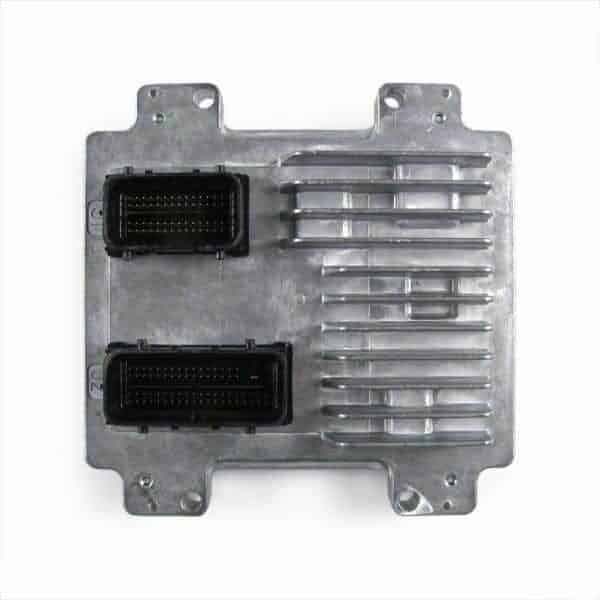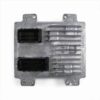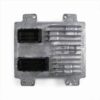Restore Your Spark’s Reliability and Performance
Is your 2013 Chevy Spark running rough, stalling unexpectedly, or showing a persistent check engine light? A failing Engine Control Module (ECM) is often the root cause, disrupting your daily drive and causing unnecessary stress. This fully programmed ECM is the direct, reliable solution to restore your car’s factory performance and get you back on the road with confidence. We take the guesswork out of the repair by programming the module to your car’s specific Vehicle Identification Number (VIN) before it ever leaves our facility.
Common Symptoms & Your Solution
A faulty ECM can cause a wide range of frustrating issues. If you’re experiencing any of the following, this module is the definitive solution:
- Persistent Check Engine Light (CEL) with codes like P0601, P0602, or P0606
- Engine misfires or stumbling during acceleration
- Unexplained drop in fuel economy
- Intermittent stalling or difficulty starting
- Harsh or erratic automatic transmission shifting
Instead of paying for expensive diagnostic time and programming fees at a dealership, our pre-programmed 2013 Chevy Spark ECM provides a straightforward, cost-effective fix. It arrives ready to install, allowing you to get your vehicle back in optimal condition quickly.
Features & Benefits
- ✔ VIN-Programmed for Your Spark: We flash the module with the latest GM software using your specific VIN. This crucial step eliminates the need for any additional, expensive dealership programming.
- ✔ Plug-and-Drive Installation: Once you receive the unit, the installation is a direct swap for your old module. No complex computers or special tools are required for the programming portion.
- ✔ Restored Engine Performance: A properly functioning ECM solves issues like rough idling, hesitation, and poor acceleration, bringing your Spark’s engine back to its original factory specifications.
- ✔ Optimized Fuel Efficiency: By correcting engine management parameters, this module helps restore the excellent fuel mileage your Chevy Spark is known for.
- ✔ Guaranteed Compatibility: This unit is a direct fit for part number 12636386 and is also compatible with part numbers 12679199, 12642927, 12621466, and 12630789. It fits a range of models including the Cruze, Aveo, Sonic, Trax, and more.
- ✔ Peace of Mind Included: This unit is backed by our one-year replacement warranty.
An Expert’s Note: From over 20 years in diagnostics, I’ve seen countless drivers waste money on used ECMs from salvage yards. The problem? They aren’t programmed for their specific vehicle. This triggers the anti-theft system, and the car won’t start. Our process is different. By programming the module to your VIN before we ship, we ensure the security systems match, the engine parameters are correct, and the unit communicates flawlessly with your Spark’s other modules. It’s the difference between a frustrating weekend project and a simple, successful repair.
Choosing the right part is critical for your vehicle’s health. This professionally programmed 2013 Chevy Spark ECM is the most reliable way to solve complex electronic issues and ensure your car runs exactly as it should. Don’t let a bad computer keep you off the road—get the right solution today.
Frequently Asked Questions
Do I need to get this programmed by a dealer?
No. We handle all the programming for you before shipping. This 2013 Chevy Spark ECM will arrive at your door flashed with the latest GM updates and coded to your vehicle’s specific VIN, making it ready for installation right out of the box.
What information do you need from me after I order?
After you complete your purchase, you will need to provide us with your vehicle’s 17-digit VIN. We cannot program or ship the module without it. This ensures perfect compatibility with your car’s systems.
Is this part difficult to install?
For someone with basic mechanical experience, swapping an ECM is generally straightforward. It typically involves disconnecting the battery, unplugging the electrical connectors, and unbolting the old module to replace it with the new one. However, if you are not comfortable working on your vehicle, we always recommend professional installation.
Will this fix my check engine light?
If the check engine light is caused by a faulty ECM (common codes include P0601-P0606), then this part is the correct solution. It is essential to have your vehicle properly diagnosed to confirm the ECM is the point of failure before ordering.
What is the warranty on this part?
This unit is backed by our one-year replacement warranty, giving you confidence in your repair.
Is this compatible with other vehicles?
Yes, while this listing is focused on the Spark, this ECM is also compatible with the 2011-2012 Cruze (1.8L), 2009-2011 Aveo, 2012 Sonic (1.8L), and several other GM models as detailed in the fitment guide.


